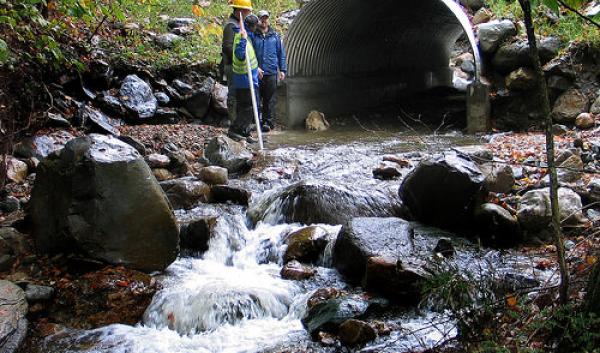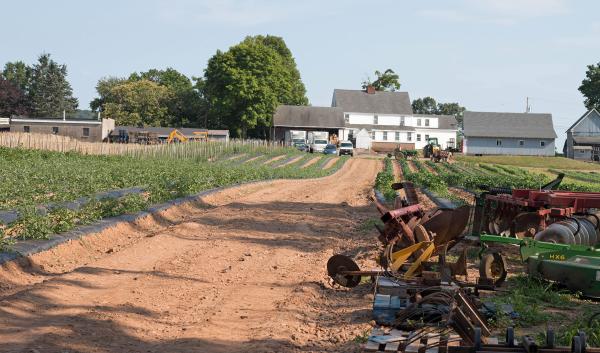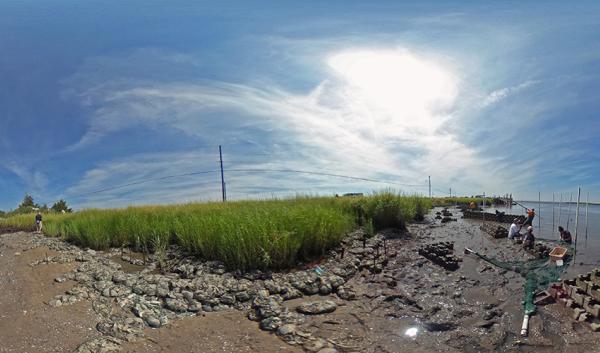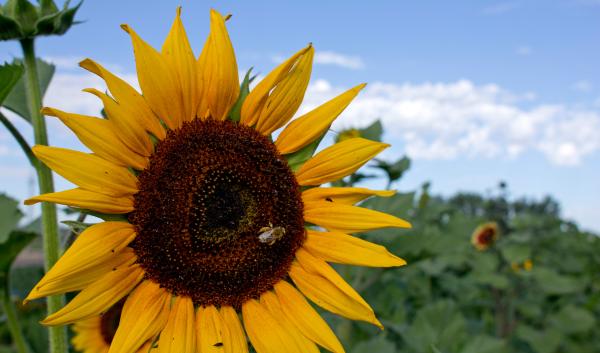Disturbances Impacts from the Northeast Hub Region
-
Storms and Stream Crossings

Stream-crossings have a lower risk of failure if designed appropriately for the stream, and with consideration of current and future regional climate conditions. Careful evaluation of structure size…
-
Continued Conversations with Cecarelli Farms

William DellaCamera faces new responsibilities and decisions for Cecarelli Farms.
-
UVM Dairy Farming Research

Research at dairy farms in Vermont shows how management practices can affect water quality, economics, and greenhouse gas emissions.
-
Economics of Gully Erosion Stabilization

Stabilizing gullies is one strategy for adapting to changing climate. This case study evaluates the costs and benefits of restoring gullies on Last Resort Farm in Monkton, Vermont.
-
Small but Mighty: Oyster Aquaculture as a Tool to Improve Ecosystem Health

Oyster aquaculture may be an economically viable solution to revive oyster populations and restore estuarine ecosystems.
-
2017 Wildfires and Hurricanes Indemnity Program to Aid Recovery in Rural Communities

The 2017 calendar year was a historic year for natural disasters; USDA will make disaster payments of up to $2.36 billion, as provided by Congress, to help America’s farmers and ranchers recover from…
-
Climate Risks in the Northeast

How are climate change and weather variability affecting Northeastern producers?
-
Cover Cropping to Improve Climate Resilience

Is your field covered? Managing a continuous cover of plants can help improve soil health and prevent erosion.
-
Living Shorelines

Rutgers University helps partners, U.S. Fish and Wildlife Service, The Nature Conservancy and the Partnership for the Delaware Estuary, build a living shoreline along the Delaware Bay shore to reduce…
-
Farmer Storytelling Session Raises Awareness of Climate and Agriculture Issues in Maine

A session at the 2018 Maine Agricultural Trades Show hosted five experienced farmers to tell their story of how a shift in weather patterns or extremes had affected their farm.
-
Northeast Climate Hub Webinar Series

This webinar series builds on capacity within USDA to deliver science-based knowledge and practical information to farmers, ranchers, and forest landowners.
-
What Do Winter Temperatures Mean for Next Season’s Pest Populations?

Many agricultural pests, such as the Colorado potato beetle (CPB, Leptinotarsu decemlineata), overwinter underground, but not all pests that burrow will survive the winter.

